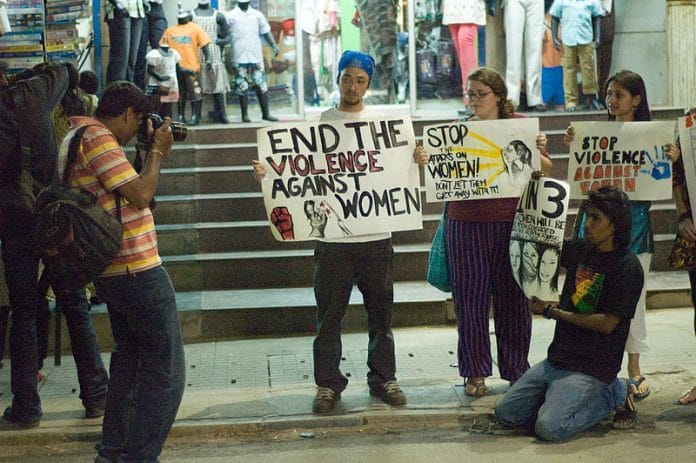Five years since the gang-rape of a 23-year old in the capital left the entire nation shaken, a new Human Rights Watch report has found that survivors of sexual violence are still grappling with the same debilitating culture of humiliation, hostility and harassment across the country’s police stations and hospitals.
Read more on the HRW report here.
What is holding India back from implementing the sexual assault laws passed after Jyoti Singh’s fatal gang-rape five years ago?
The 2013 criminal law reform filled a longstanding gap in addressing sexual offences. A definition of consent that expects the accused to show that the victim unequivocally and volutantarily agreed to the particular sexual act, entitlement to compensation, medical aid cum treatment to victims and making police accountable for refusal to follow the law – are all steps forward.
Yet, no matter how good the law is, it is doomed to remain on paper if unaccompanied by public education, behavioural change and enforement of rule of law. The HRW report brings out valuable findings, complimenting other reports on rape of Dalit girls in Haryana, or of tribal girls in Chhattisgarh by the WSS (Women Against Sexual Violence and State Repression). Away from the din of high profile cases in metros, media glare and shrill calls for stringent penalties and death sentence, exists the reality of routinised sexual violence, often eggregious, against girls and women in contexts where law makes no pretence of working for the poor and the disadvantaged. Women are not a flat category – the experience of those disadvantaged by gender, caste, minority or migrant status in social relations and in law – are vastly different. The levels of impunity enjoyed by those marginally higher in social and economic status, as the cases in the report show, should alarm us.
Here are other perspectives on sexual assault laws:
Neetika Vishwanath: Lawyer, Centre on the Death Penalty at National Law University, Delhi
Manasi Phadke: Associate editor, ThePrint
Deepika Narayan Bhardwaj: Director of documentary film “Martyrs of Marriage” on misuse of anti dowry law
Sabah K: Journalist at ThePrint, and survivor of sexual assault
At particular risk stand those courageous victims who pursue legal redress. Apart from the backlash and stigma, the law throws them into a blind maze of procedures without any guidance. The study by Partners for Law in Development on compliance with pre-trial and trial procedures designed to support victims shows that lack of medical treatment, hostile medical examination, non-availability of compensation and most of all, absence of legal assistance and coordinated support services to the victims. Legislative reform is only a starting point. Without building an eco-system of equality and rule of law across the country – beyond the parameters of just the rape law – legal redress will be inaccessible to those at the socio-economic margins in India.
Madhu Mehra is a feminist lawyer and executive director of Partners for Law in Development, a legal resource group on women’s equality and social justice.






